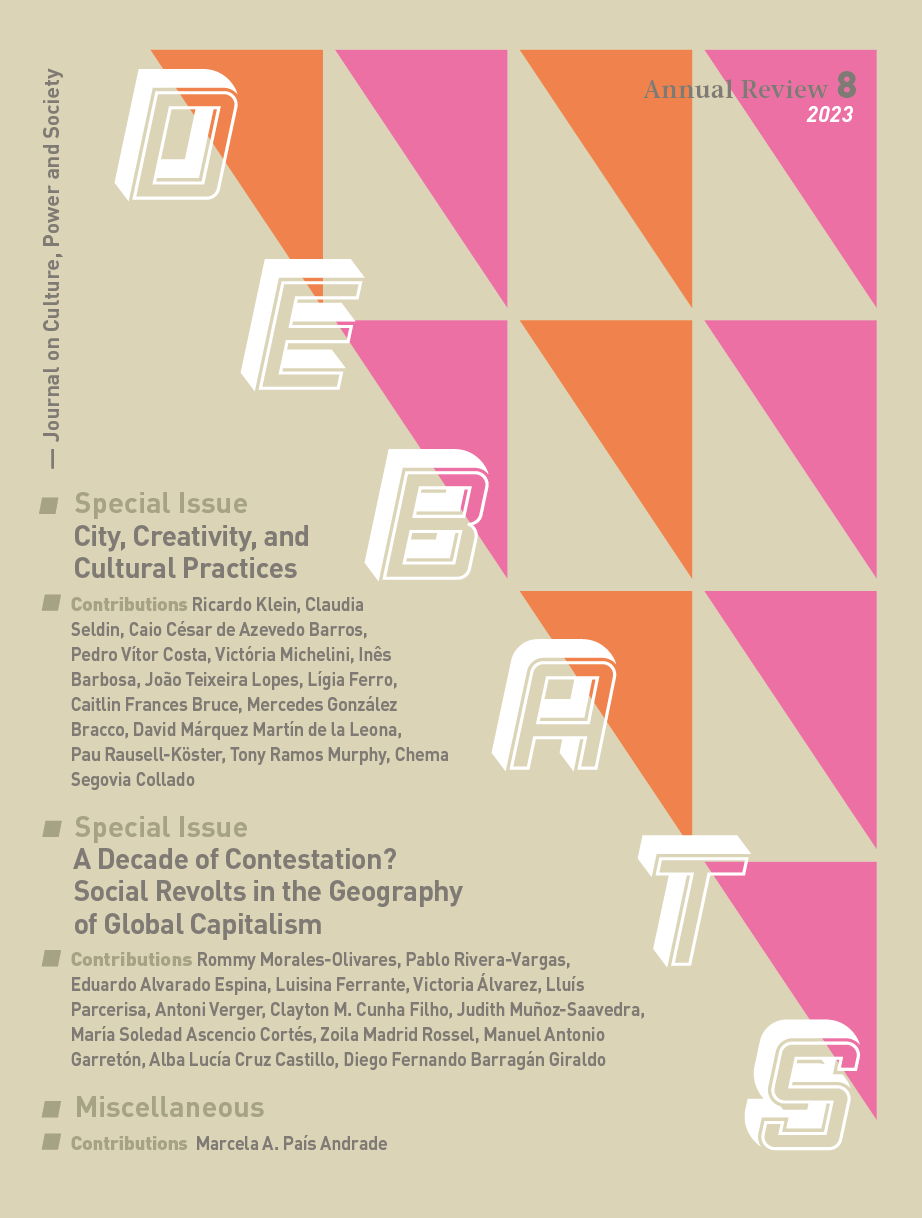New Social Movements in Times of Conservatism and Austerity: Analysis of the political process of educational mobilisation in The Balearic Islands (2013-2015)
Resum
During the 2011-2015 legislature, the education sector in The Balearic Islands was shaken by
root-and-branch proposals for educational reform that combined draconian austerity policies and an
ambitious plan that questioned the existing linguistic model. Efforts to push through these reforms
led to the emergence of new collective actors and networks, and disputes that culminated in the
calling of an open-ended strike in the education sector. This paper analyses the path of and
reasons for the success of the social mobilisation against said reforms. At the theoretical level,
the research is guided by the political process approach, which considers the ideas and structural
factors driving collective action. Methodologically, the case study follows the process-tracing
approach and is based on 20 semi-structured interviews with key actors and on document analysis.
The findings show that frame-bridging, together with the combination of diverse collective action
repertoires, played key roles in
the social movement’s success.
Descàrregues
Referències
Beach, D., y Pedersen, R. B. (2013). Process-Tracing Methods: Foundations and Guidelines. Ann Arbor: University of Michigan Press.
Beamish, T. D., y Luebbers, A. J. (2009). Alliance building across social movements: Bridging difference in a peace and justice coalition. Social Problems, 56(4), 647-676.
Benford, R. D., y Snow, D. A. (2000). Framing processes and social movements: An Overview and Asssessment. Annual Review of Sociology, 26, 611-639.
Della Porta, D., y Diani, M. (2011). Los movimientos sociales. Madrid: Editorial Complutense, S. A. y CIS.
Guerrero, M. (2015). Els tentacles de les tenebres: un govern contra l’escola. Palma: Lleonard Muntaner.
Hay, C. (2002). Political Analysis. A critical introduction. Nueva York: Palgrave.
McAdam, D., McCarthy, J., y Zald, M. (1999). Movimientos sociales: perspectivas comparadas. Madrid: Ediciones Istmo S. A.
Melià, J. (2014). La movilización social por la lengua y la educación en las Baleares. Revista de la Asociación de Sociología de la Educación (RASE), 7(3), 8.
Moore, W. H. (1995). Rational rebels: overcoming the free-rider problem. Political Research Quarterly, 48(2), 417-454.
Narodowski, M., Moschetti, M., y Alegre, S. (2016). Huelgas docentes y educación privada en Argentina. Revista Colombiana de Educación, 70, 27-45.
Pastor, J. (2010). El Partido Popular y la anomalía española. Viento Sur, 111, 61-68.
Patton, M. Q. (2002). Qualitative Research and Evaluation Methods. Thousand Oaks, CA: SAGE.
Snow, D. A., y Benford, R. D. (1988). Ideology, frame resonance, and participant mobilization. International Social Movement Research, 1, 197–217.
Snow, D. A., Rochford Jr., E. B., Worden, S. K., y Benford, R. D. (1986). Frame alignment processes, micromobilization, and movement participation. American sociological review, 464-481.
Tarrow, S. (2012). El poder en movimiento. Los movimentos sociales, la acción colectiva y la política. Madrid: Alianza Editorial.
Verger, A. (2008). ¿Por qué tienen éxito (o fracasan) los movimientos sociales? Ejemplos de las campañas en defensa de la educación pública. En P. Polo, y A. Verger (coords.), Educación, globalización y sindicalismo. Palma: Escola de Formació en Mitjans Didàctics-STEI-i.
Verger, A., Fontdevila, C., y Zancajo, A. (2016). The privatization of education: A political economy of global education reform. Teachers College Press.
Descàrregues
Publicades
Com citar
Número
Secció
Llicència
Sense perjudici del que disposa l'article 52 de la Llei 22/1987 d'11 de novembre de Propietat Intel·lectual, BOE del 17 de novembre de 1987, i conforme a aquest, els/les autors o autores cedeix/en a títol gratuït els seus drets d'edició, publicació, distribució i venda sobre l'article, per tal que siga publicat a Debats. Revista sobre cultura, poder i societat.
Debats. Revista de cultura, poder i societat es publica sota el sistema de llicències Creative Commons segons la modalitat “Reconeixement – NoComercial (by-nc): Es permet la generació d’obres derivades sempre que no se’n faça un ús comercial. Tampoc no es pot fer servir l’obra original amb finalitats comercials”.
Així, quan l’autor/a envia la seva col·laboració, accepta explícitament aquesta cessió de drets d’edició i de publicació. Igualment autoritza Debats. Revista de cultura, poder i societat la inclusió del seu treball en un fascicle de la revista perquè es puga distribuir i vendre.











